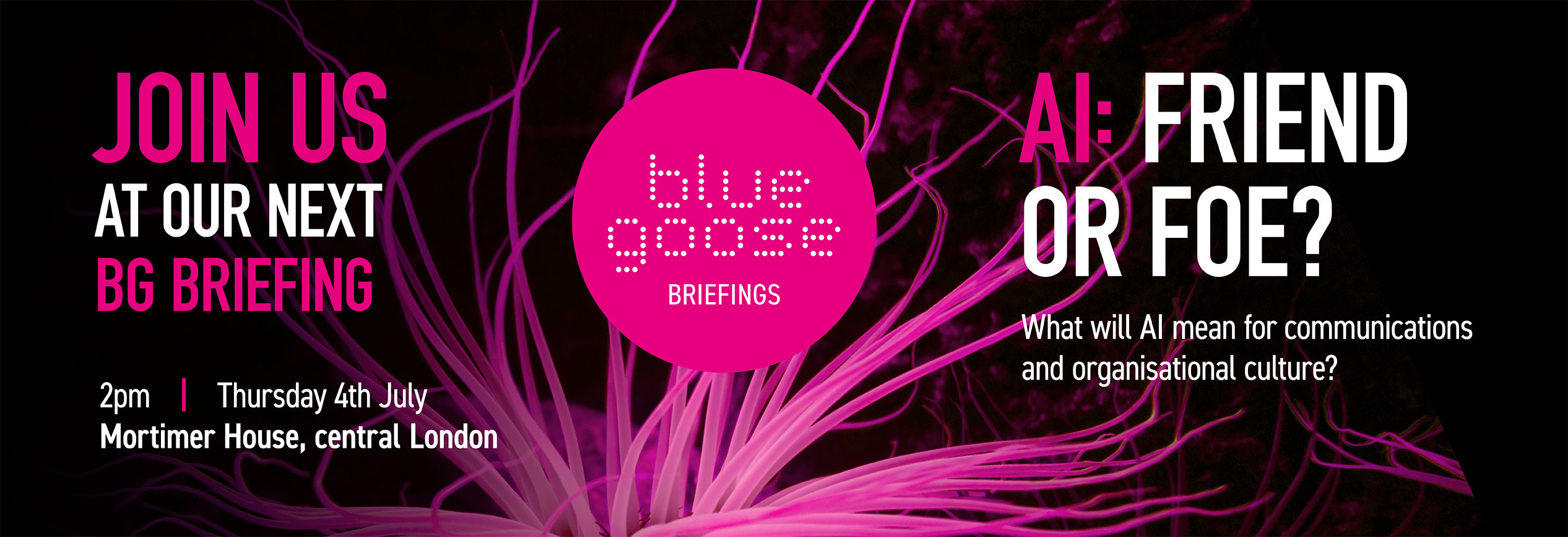As we’re living in an era defined by what seems to be constant flux, the ability to communicate with clarity, foster optimism, and build unwavering trust has become critical for transformation leaders and communication professionals.
For this reason, we hosted our latest Blue Goose Briefing on ‘Optimism In Uncertain Times,’ bringing together industry leaders to share insights on navigating the complexities of change and transformation. Held at Mortimer House, London, we fuelled the afternoon with good conversation, canapés and beverages.
On the panel we welcomed: Sharon Olubunmi Daniels, Transformation Change Leader at BT Group; Kris Gibbon-Walsh, CEO of FareShare; and Sanjay Mistry, European Head of Communications and Engagement at ODEON Cinemas Group.
Below are the key highlights offering perspectives for peers within communications and change leadership.
Moderated by Ben Watson, Blue Goose managing director and strategy director, Ben framed the discussion around the big four change imperatives as outlined by Forbes in 2025:
- Advancing technology
- Cost crisis and instability
- Climate and sustainability
- Hybrid teams and employee expectations
Opening the panel debate, he asked a fundamental question: Are these truly unprecedented times, or is change simply a constant we must learn to embrace?
While some argued for the unique nature of current challenges, particularly in a post-COVID world, there was a consensus that the pace and layers of change continue to intensify.
Sharon split her opinion into ‘part yes and part no’.
‘A lot has changed in the world of organisations, also in our profession as change communicators, or change managers, post-COVID,’ she said.
‘So, I think that, in that sense, yes it’s unprecedented. But, also no, because we were all raised to know that change is a constant in life. Change is constant and without change, we won’t move to the next level.’
[BG Briefing audience poll revealed 64% believe ‘We are living in a time of unprecedented times’; 20% said ‘No’ and 16% said ‘Partly’]
Sanjay added: ‘There’s always been change, as Sharon said, but I think what’s changed now is our employees wanting to know exactly and instantly how you’re going to deal with it.’

Strategic framing of optimism in communications
A central theme was the critical role of optimism within organisations. Ben cited a Gallup poll which revealed that 56% of people primarily seek ‘hope’ from their leaders – a sense of optimism that things will be okay. But this isn’t about blind positivity everyone agreed, rather it’s a strategic framing of change as opportunity.
However, Kris, whose organisation is going through a merger, cautioned against the ‘burning platform’ approach to change, explaining, ‘burning platforms are things people like to jump off, rather than to feel safe in.’ Instead, he advocated for ‘selling change on optimism,’ being ‘really clear about how we are changing to be better.’
‘To talk about financial jeopardy or the current situation too much, in terms of why we’re changing, I think is problematic. You’ve got to get the right balance.’
This proactive, forward-looking narrative is essential for gaining employee buy-in and fostering a positive outlook during periods of uncertainty.
‘People hate change, but they like progress. And as soon as the uncertainty is resolved, they start to feel better. So, I think that’s where the focus is,’ Kris added.
[BG Briefing audience poll: How could organisations communicate change better? ‘More transparency’ was top response with 44%]
Trust, closely linked to optimism, was highlighted as another non-negotiable element. The panel emphasised that in a world awash with mis-information and often skepticism, transparency is key.
Audience member, Chiara Di Mola, UK and Brand Communications Specialist at Kedrion, commented: ‘There is a lack of trust at times about what people receive in terms of messaging… they don’t just want to hear what the benefits could be, but they want to hear the whole business story.’
Sharon responded with a crucial nuance, stressing that transparency must be delivered with ‘constructive optimism.’ It’s not just about revealing the truth, she said, but framing it in a way that energises and inspires, rather than deflates. The tone and delivery of transparent communication are as vital as the information itself with Sharon adding that body language when delivering change communications is equally important.
Importance of emotional energy during change
The discussion also delved into the practicalities of leadership, communication tactics and and examining the conventional McKinsey organisational change model of:
- Energise the organisation
- Support execution
- Reinforce commitment
- Systems and processes in place
When asked by Ben if he still follows this model, Kris replied they do, to a degree: ‘The four symbols and reinforcing commitment feels hefty, sometimes, because people will come on their own change journey in their own way, at their own time.
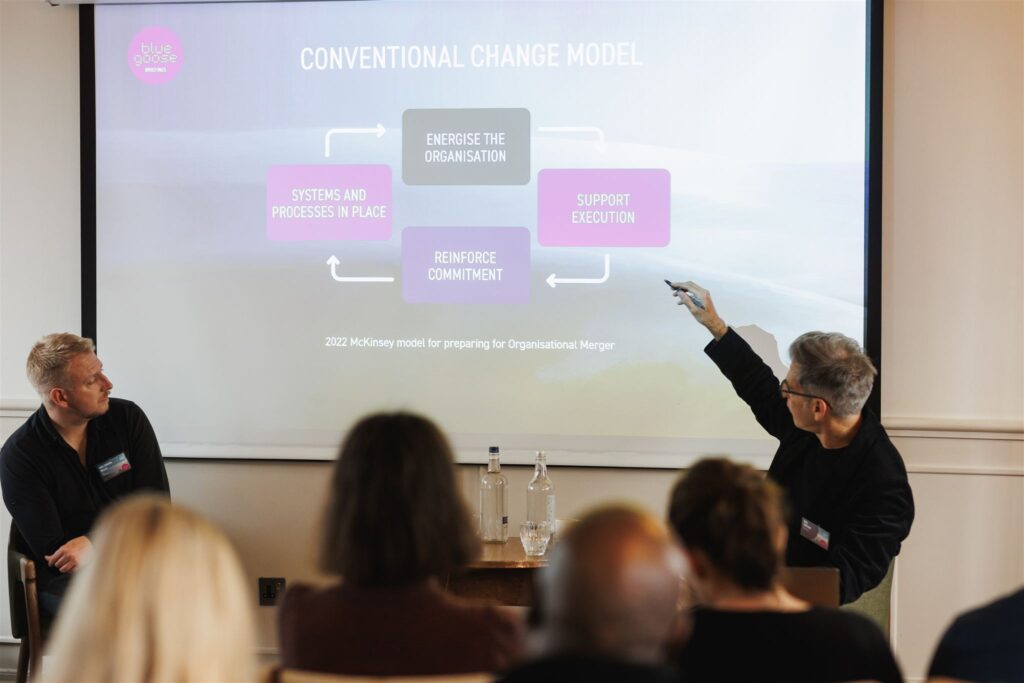
‘People are human beings and we talk about people’s energy in an organisation being the single most important resource,’ said Kris.
‘The more change you go through, the less energy you have in the organisation. So, you have to think about what recovery looks like for your people and what your peloton is within your organisation.
‘My strong view is, we’re not good enough at actually rethinking what your people’s environment needs to look like to be able to deal with the world of change as it is right now. In terms of people just being able to have enough energy to be able to do all the things in their life.’
Sanjay spoke about the importance of supporting leaders through constant change and the ‘Incredible Leadership Framework’ they developed at ODEON, built on five pillars including ‘Know yourself,’ ‘Value your teams, and ‘Create a future.’
This framework aims to provide a ‘sense of shared belonging’ across a diverse, five-generation workforce. He highlighted the importance of recognising colleagues constantly, from cinema vouchers to film premieres, to foster a strong culture of belonging. This demonstrates how a clear framework, coupled with consistent recognition, can create a cohesive and engaged workforce even amidst significant change.
Sharon shared BT Group’s approach to internalising external messages, turning colleagues into ‘ambassadors’ of change. They’ve developed a ‘transformation change playbook’ with optimism at its core, utilising storytelling and ‘authentic, short, optimism scripts’ for middle-level managers.
She also highlighted the challenge of communicating with non-desk-based employees, who don’t have email access – a common objective for the large-scale organisations Blue Goose work with. BT Group found that ‘a well-designed notice board was getting to those people, rather than emails.’ This reinforced the critical need for communication leaders to understand their diverse audiences and adapt their channels accordingly.
The evolving relationship between employer and employee was another significant point of discussion. From the audience, Sarah Helsdon, former Global People Leader EMEA at GHD, commented on a ‘massive shift’ in the balance of power, with employees now more demanding and less likely to dedicate their entire lives to a single career. She noted that ‘loyalty to your organisation is less important these days,’ while ‘what’s in it for them, what the social purpose of your organisation is, having some understanding about where work fits in their whole life is really important.’
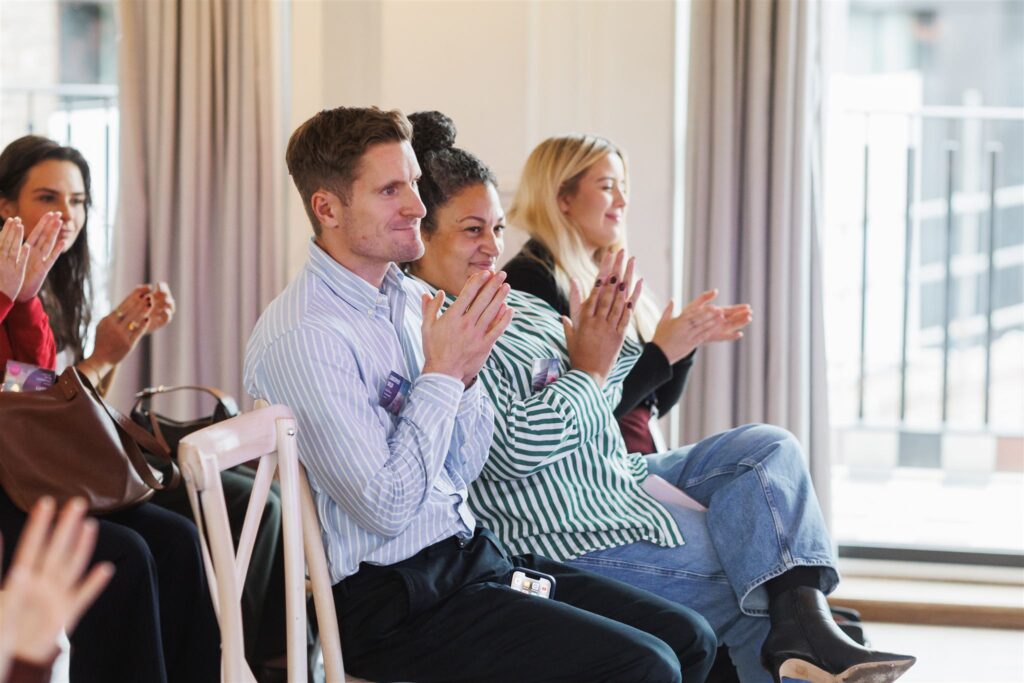
Providing purpose and supporting employee personal growth
There is a growing need for organisations to offer more than just a job as they move through transformation; they must provide purpose, support personal growth, and acknowledge the holistic lives of their employees.
Sanjay emphasised the continued importance of understanding people, particularly millennials, Gen Z, and Gen Alpha, and their evolving expectations of work. He stressed that businesses must adapt to these changing demands to remain relevant as both employers and consumer brands.
Ben summarised that change is working both ways, which is downwards – the pressure from organisations and also upwards from people.
‘While the nature of change may be debated, its impact is undeniable,’ he added.
Effective communication, infused with genuine optimism and built on a foundation of trust, is no longer a soft skill but a strategic imperative was the key message of the day.
And it’s those organisations that prioritise understanding their people, adapting their communication channels, and framing change as an opportunity for progress that will be best positioned to thrive in the years to come.
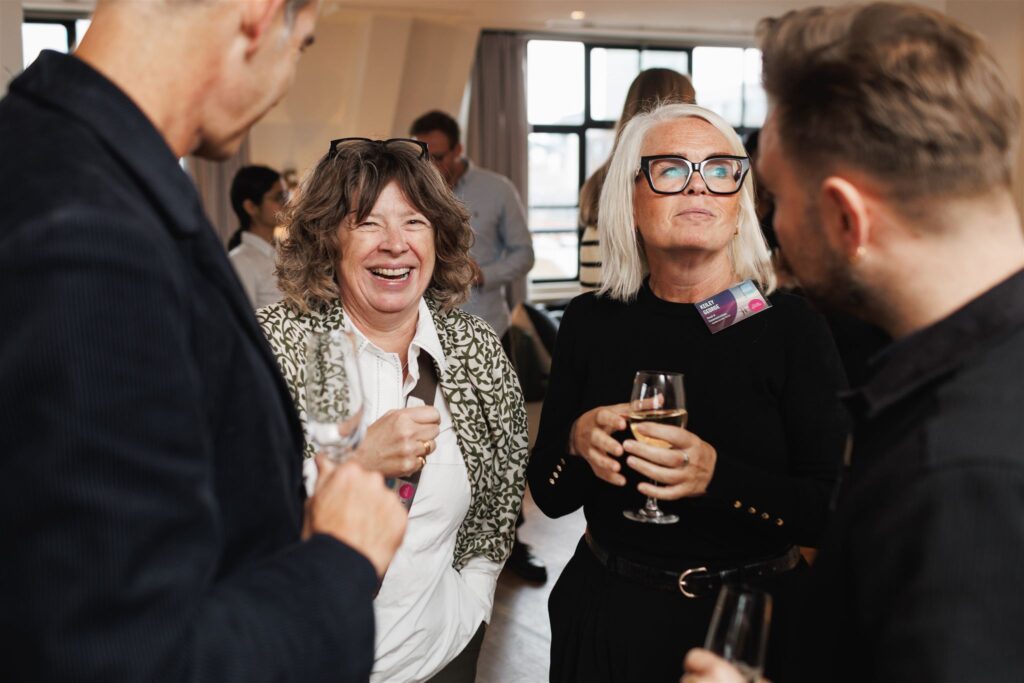
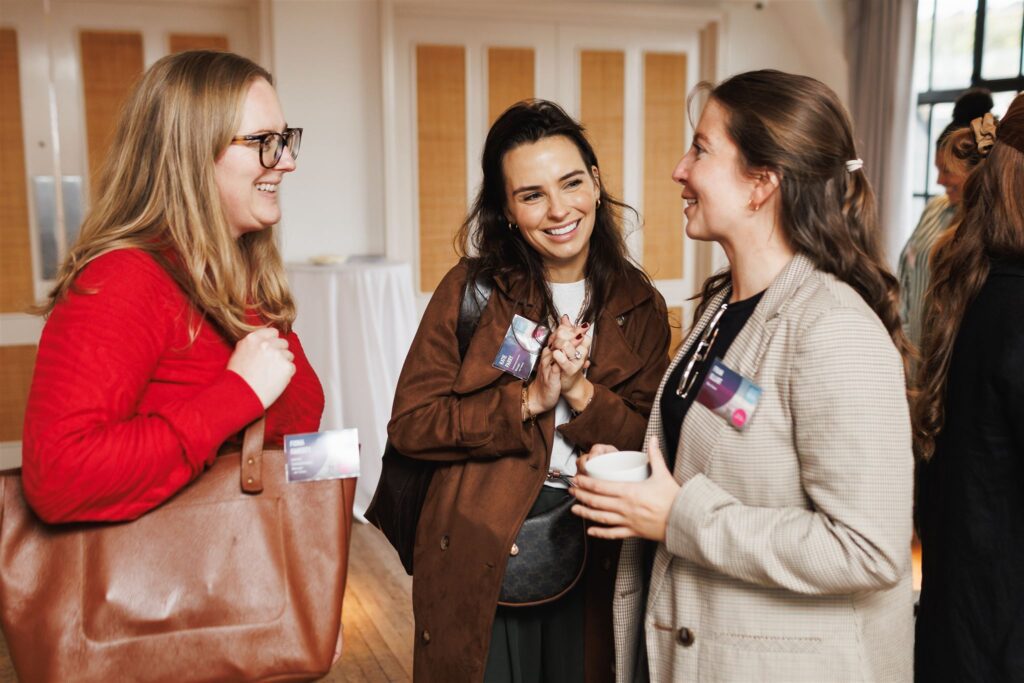
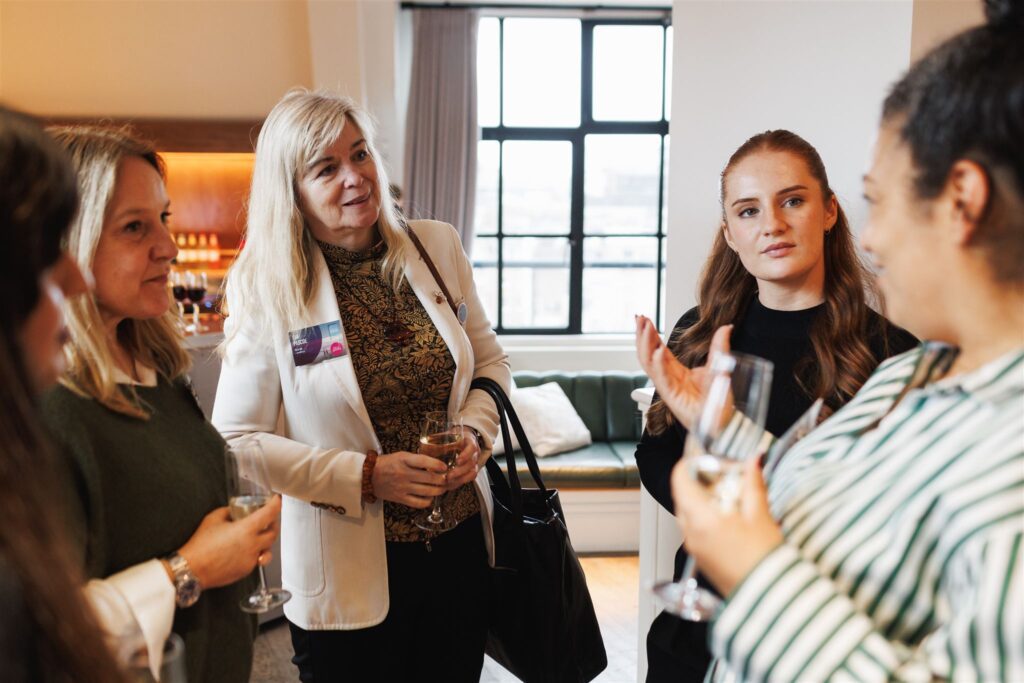
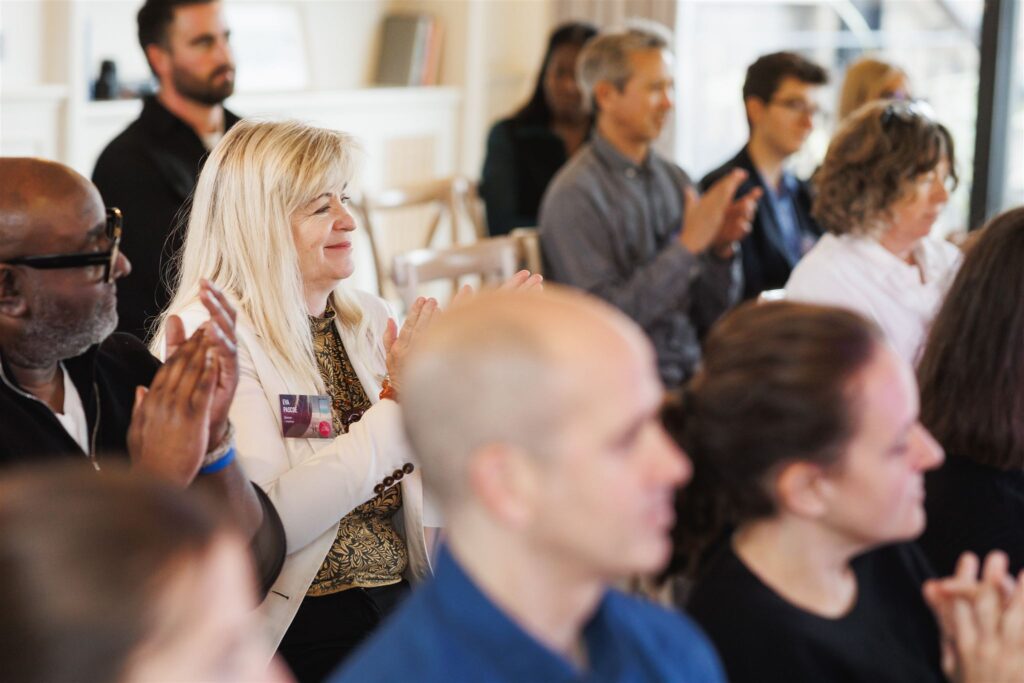
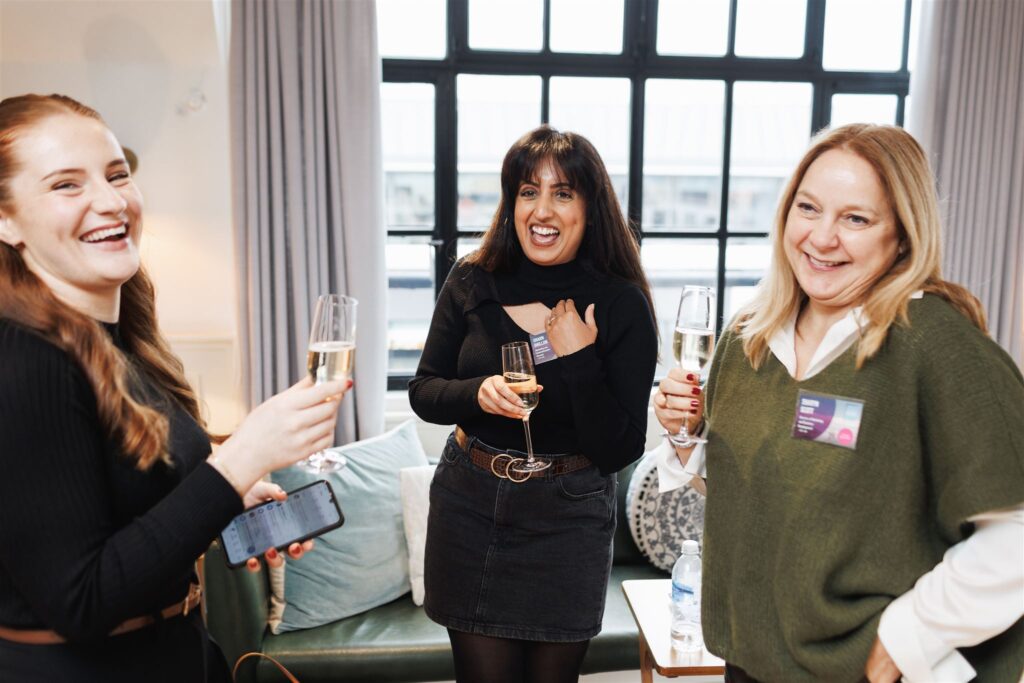
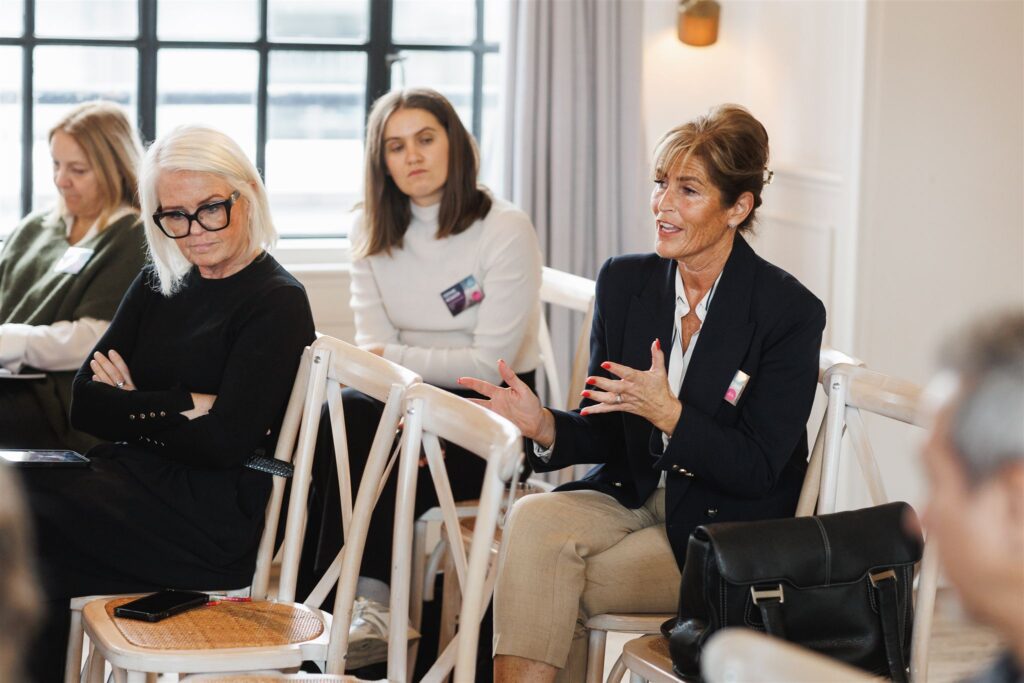

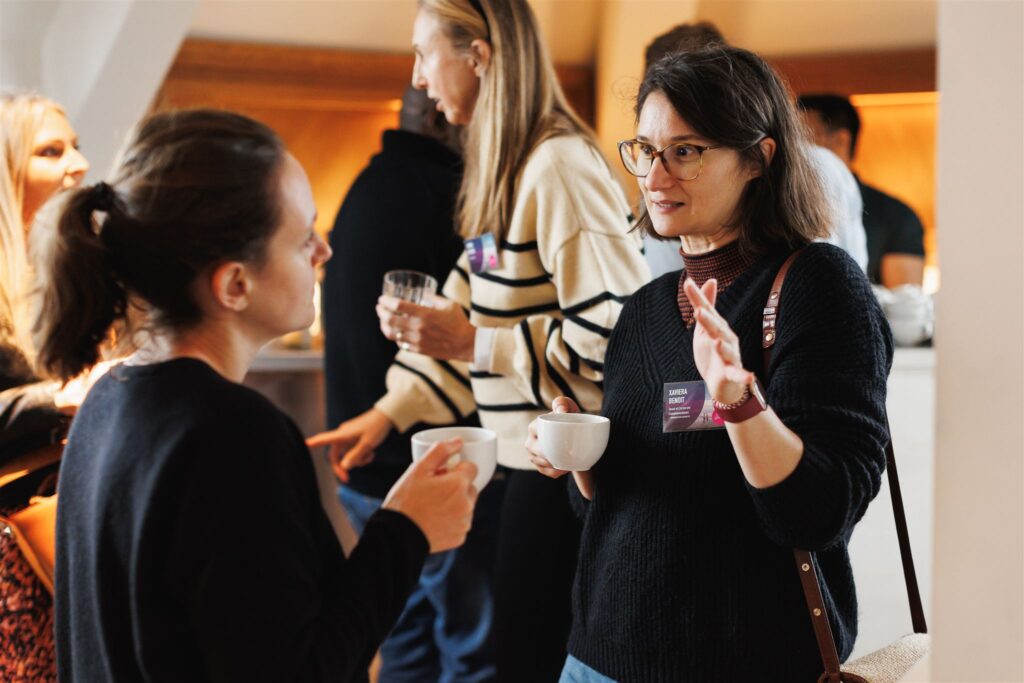
Thanks to our panelists and guests who attended. If you want to discover more on how Blue Goose can support you with change and transformation communication strategies then speak to our team here at https://bluegoose.co.uk/contact-us/
Follow more Blue Goose events here




